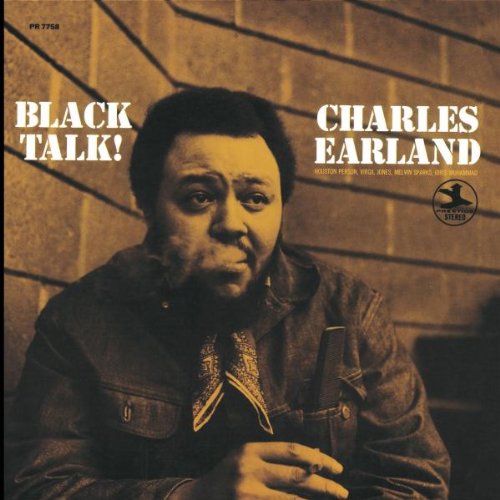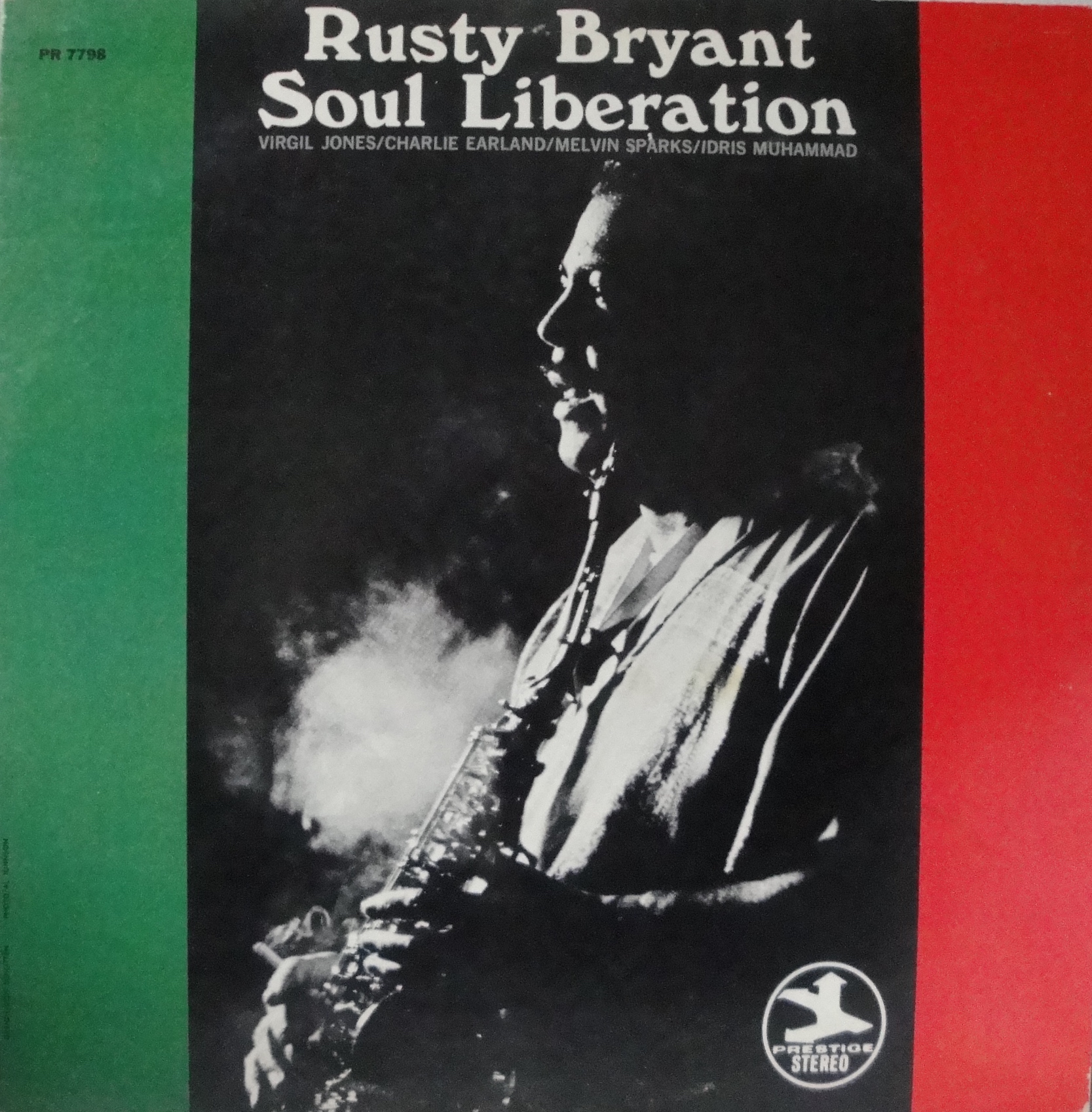The single from the session that spawned organist Charles Earland’s album Black Talk, a cover of the Spiral Staircase’s More Today Than Yesterday, was a big hit on black radio stations. Subsequently, Black Talk became one of Prestige’s best-selling albums. As far as organ and soul jazz goes, it is hard to find an album that keeps the energy level so enormously charged from start to finish.
Personnel
Charles Earland (organ), Houston Person (tenor saxophone), Virgil Jones (trumpet), Melvin Sparks (guitar), Idris Muhammad (drums), Buddy Caldwell (congas)
Recorded
on December 15, 1969 at Van Gelder Studio, Englewood Cliffs, New Jersey
Released
as PR 7758 in 1970
Track listing
Side A:
Black Talk
The Mighty Burner
Here Comes Charlie
Side B:
Aquarius
More Today Than Yesterday
Mainly responsible for Black Talk’s unstoppable vibe are Earland and quintessential soul jazz drummer Idris Muhammad. They shared duties in Lou Donaldson’s group and played on Say It Loud! and Hot Dog and would continue to play together on Everything I Play Is Funky. Apparently, recording Black Talk had been satisfactory, because the complete line-up of Black Talk minus Houston Person would record together six months later on saxophonist Rusty Bryant’s Soul Liberation.
Even a relatively lithe shuffle as More Today Than Yesterday is charged with remarkable energy. Earland’s driving solo is a highlight of the album, containing a string of coherent, funky statements. Another (famous) pop song, The Fifth Dimension’s Aquarius, also has guts, drive and a deeply groovy solo by Earland, as well as quietly thunderous bits by Virgil Jones. Jones strikes me as a very knowledgeable and pleasantly buoyant trumpeter.
Here Come Charlie is a Lou Donaldson-type boogaloo that evolves into a spirited piece of soul jazz, courtesy of Earland’s and Muhammad’s amazingly tight, dynamic interplay. Houston Person delivers a particularly hot solo. The Mighty Burner is a concise, swinging uptempo tune. Earland shows why he deserved the nickname of the tune’s title, ‘The Mighty Burner’.
The title track, loosely based on The Beatles’ Eleanor Rigby, is blessed with a firecracker beat of Idris Muhammad that kicks the listener out of his chair. Earland and the group pick up on it and groove deeply, with the exception of Melvin Sparks, who delivers a cumbersome opposition of a story. He’s better on More Today Than Yesterday, leaving out blurred, cheap frills and instead succinctly making lines meet. One thing in favor of Sparks, the guitarist possesses an individual, quirkily funky style.
Style is written all over Charles Earland’s Black Talk. Meaning repertoire consisting of hot funky originals and wonderful pop adaptations and above all, a delicious, staggering drive.



